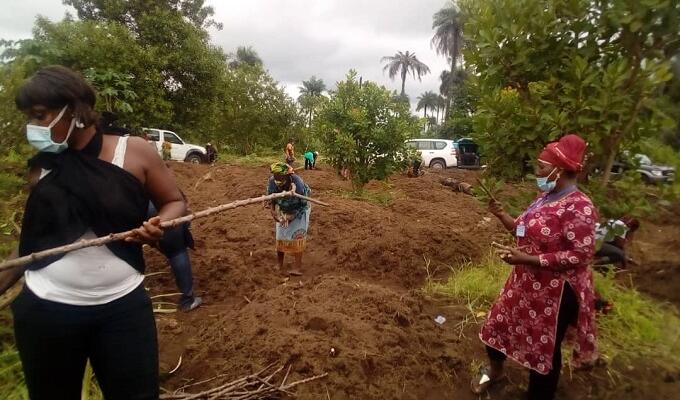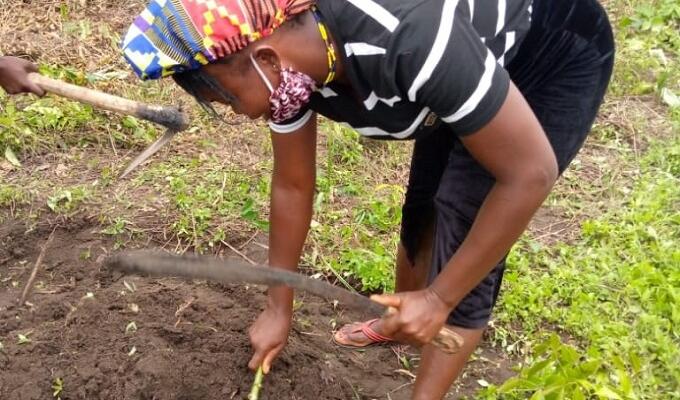

Making smallholder women farmers resilient
Training smallholder farmers to help bolster the resilience of agricultural systems in Sierra Leone
“Weeding and constructing fire belts is key to cashew production and productivity. This is my first training on cashew and good agricultural practices,” said Diana Sesay from Bombali, Northern Sierra Leone.
Diana is generous and wants to share her knowledge of cashew production with her fellow farmers back in her village.
Intercropping is one of the techniques that Aminata found helpful during the pandemic.
“Due to the current health crisis, we cannot sell our stocks and we will now have to depend on alternative inputs for income. The intercropping exercise has given us more motivation to take care of our cashew farm,” Aminata Fofanah, from the provisional cashew farmers association in Bombali said.
With the easing of COVID-19 related measures in Sierra Leone, Diana, Aminata and other women farmers participated in the first round of in-person trainings on Good Agricultural Practices (GAP) in the northern part of the country. They adhered to social distancing recommendations as they watched demonstrations in the field.
Farmers from the cashew growing communities of Bombali District in Northern Sierra Leone will also develop income diversification skills, technical capacity and receive farming inputs such as cassava cuttings.
Pruning, insect management, farm maintenance and knowledge transfer among community leaders will also be included in this effort to train 600 Sierra Leonean farming households in GAP.
The International Trade Centre through its SheTrades West Africa project has joined forces with Balmed Holdings Ltd., an exporting firm in Sierra Leone, to improve income, livelihoods and food security of local farmers. The Sierra Leonean Ministry of Trade, the Ministry of Health, the Ministry of Agriculture, the Produce Monitoring Board (PMB), COOPI and ComCashew are also lending their support to the initiative.
Funded by the Korea International Cooperation Agency (KOICA), the project will empower women in the cashew, cassava and shea sectors in Cote d’Ivoire, Guinea, Liberia and Sierra Leone.



